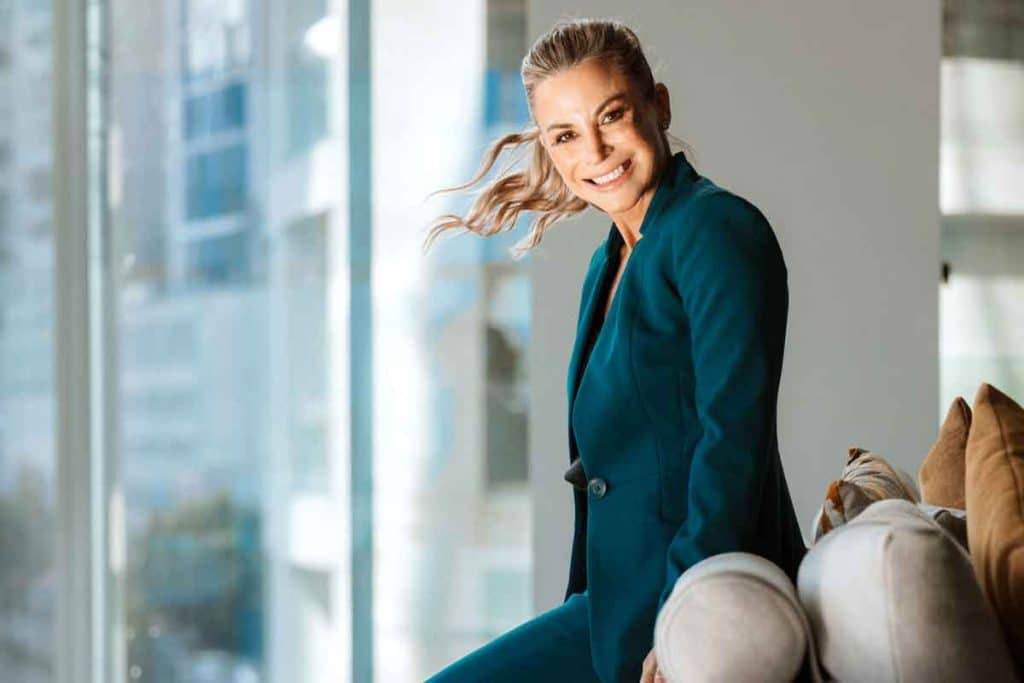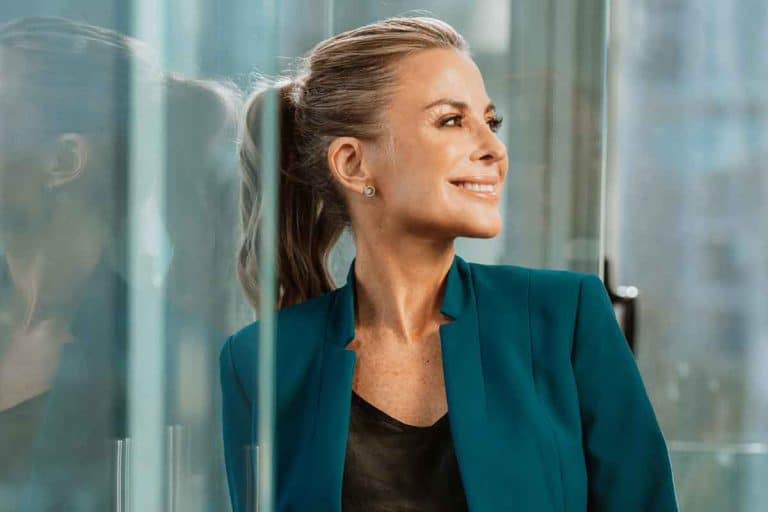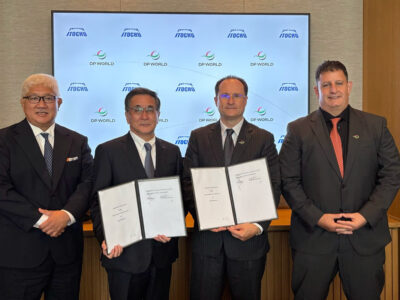Silvina Moschini has spent decades uncovering emerging opportunities and backing founders who go on to transform entire industries. As president of investment company TransparentBusiness and producer of the hit reality show Unicorn Hunters, she has developed a keen instinct for spotting the next big, revolutionary idea.
In an exclusive interview with Arabian Business, Moschini provided insight into her process for identifying the industries and entrepreneurs most primed for exponential growth, like the Starbucks and Ubers of the world that achieve billions in valuation and fill an unprecedented gap in the market.
Unicorn Hunters is a reality series, based in Los Angeles, that gives everyday investors direct access to emerging growth companies. Produced by Craig Plestis, the show combines entertainment and investment opportunities in the new “enrichtainment” genre.
Each episode features startups pitching to the show’s panel, also known as the “Circle of Money,” which includes Apple co-founder Steve Wozniak, former Treasurers of the United States Rosie Rios, former Director of Administration to Joe Biden Moe Vela, President of TransparentBusiness Silvina Moschini, CEO of TransparentBusiness Alex Konanykhin, former NSYNC member Lance Bass, and actor Christopher Diamantopoulos. As a subsidiary of TransparentBusiness, Unicorn Hunters gives everyday investors access to pre-IPO companies with billion-dollar potential.

Moschini believes “blue ocean strategy”—exploring uncontested market spaces with room for expansion—holds the key. “There are still many integration opportunities between industries where systems don’t fully interconnect,” she noted. Weaving together domains like health, fitness and nutrition through emerging technologies presents massive potential, she explained.
As a young woman growing up in Argentina, her father once told her “if you want to be a princess, you need to become a princess that builds her own castles.” Fast forward decades later, Moschini has funded numerous successful ventures and launched some of her own. She has now devised her own unique methodology when it comes to identifying high-potential startups – one that is based on intuition and experience.
Industry primed for growth
First, investors must understand which industries are primed for exponential gains.
Moschini looks for companies in areas ripe for “integration opportunities” and “blue ocean strategy.” One which she identified exclusively to Arabian Business was longevity and wellness, where integration opportunities abound between health, fitness, biometric, and nutrition technologies.
“Investing is always about diversification and hedging your risk. As they say in Silicon Valley, ‘you spray and pray’. You know that many could go wrong, but if you get a few right – and very right – you’re golden,” she said.
Problem-solution fit
Merely having innovative tech is not enough. Investors want proof of market need and solution, she explained.
As Moschini noted, a company’s value proposition must solve real problems, not just hype.
“You can’t invest in an industry that no one is investing in. There are cycles where the majority of investors focus on a specific industry,” she revealed.
“Four or five years ago, it was edtech, the last two years, everybody was investing in fintech. Now, I think the next wave is longevity and wellness because there is also a population shift in which people over 50 are seeking to extend their lifespans.”

Health and biotech may well be where the next unicorn lies, she said, suggesting that leveraging AI in this space could make way for a fully integrated system where people can track their health, nutrition and fitness.
“This type of integration that brings things together under one platform still does not exist.”
Diversity mindset and team strength
Diverse founding teams that think beyond biases often see fuller perspectives. Moschini favours companies cultivating inclusion from the start to better understand varied users and opportunities.
“I look for the diversity mindset and how entrepreneurs are building their teams, as well as their creative potential,” she said. “When you are leading multi-cultural teams, you need to be able to understand different backgrounds.”
A huge asset in Moschini’s eyes is finding an entrepreneur who is emotionally intelligent.
“Emotional intelligence and common sense are the most difficult skills to find,” she noted.
Founder credibility
Backability goes beyond financials, she believes. Founders must command credibility to convince backers of their vision.
Moschini assesses whether leaders have authenticity, resilience through failures, and emotional intelligence to handle multi-faceted challenges.
“Investors will bet on what they believe you may have. As an entrepreneur, you’re building something that has not been built yet. Credibility is important but you also need to be agile and resilient.”

Room to scale globally
The potential to take a local concept and scale it globally can determine if a venture has unicorn potential.
“As an entrepreneur, you need to be a survivor. There is nothing romantic about being an entrepreneur – it’s super hard,” she said.
“I think successful people have a responsibility to share how difficult it was, how many times they had to pivot, how many times they cried and felt useless before they got things right.”
With experience in globalising ventures, Moschini sees local support enabling worldwide visions, as per Dubai’s many accelerators attracting global talent.
Unicorn Hunters eyes Dubai expansion
Moschini revealed plans to make Dubai the show’s global hub, leveraging its support for startups and business-friendly environment.
“Dubai is the new Manhattan. The government backing makes a real difference,” she said. With more entrepreneurs coming to tap opportunities and an influx of global talent looking to launch their own ventures out of Dubai, Moschini sees rich possibilities for expansion.

Operating from Dubai would expand the show’s reach beyond 300 million potential viewers, connecting Unicorn Hunters to regional startup hubs. While Silicon Valley saw backing, regulations now enable opportunities elsewhere like Dubai committed to innovation.
“I am obsessed with women and giving them positions of power. In order to do this, they need to have money. And in the Middle East, women hold more degrees than men, especially Arab women, this is a big deal,” she said, revealing plans to support female entrepreneurs who typically receive only 2 percent of VC funding globally.
“I’ve been meeting with key stakeholders in Dubai and, inshallah, if all goes well, we are on the right track to bring the show to the region.”









